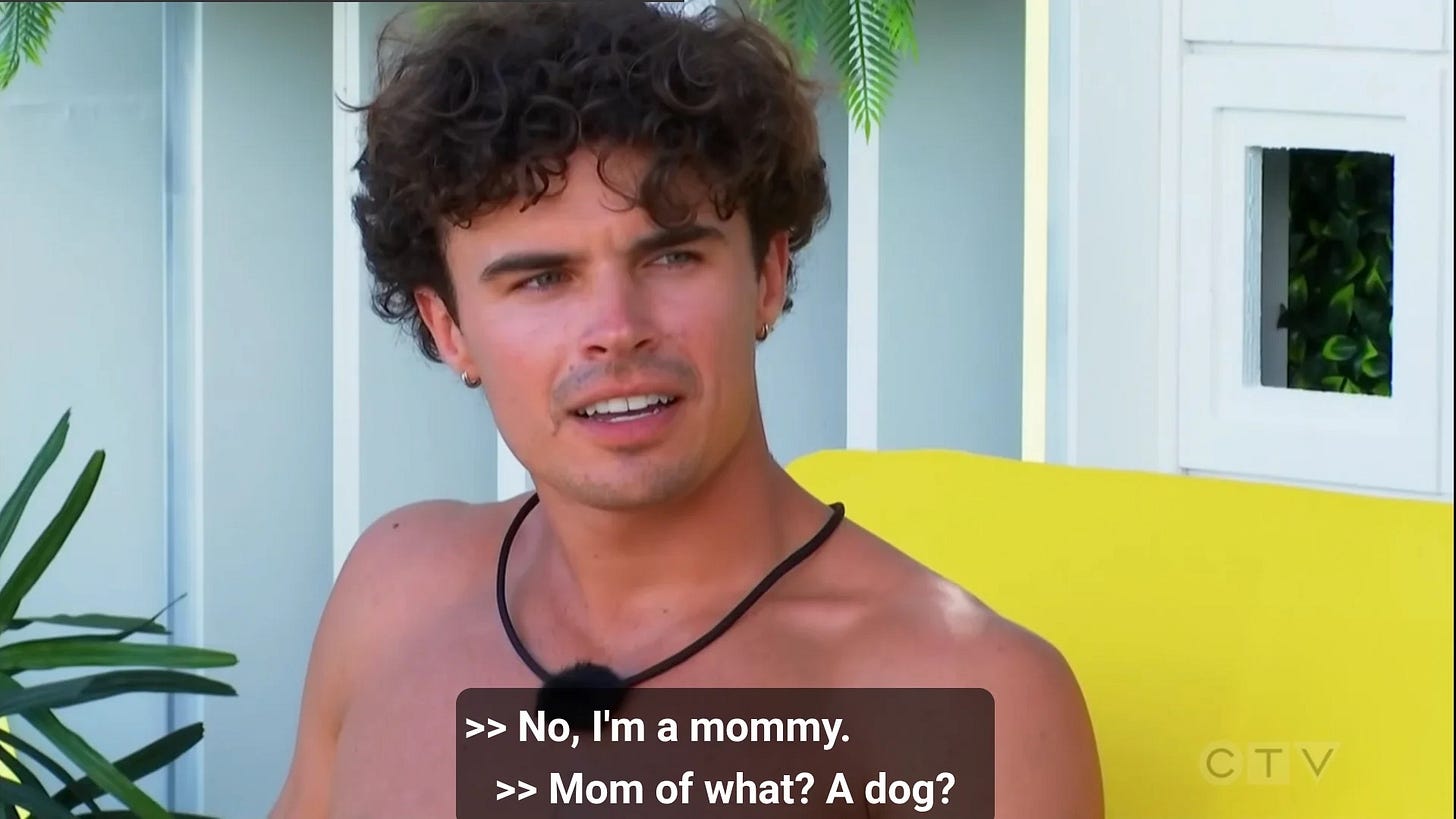Love in a petri dish
As Americans revel in the bikini-clad, reality tv panopticon of 'Love Island': why are we so (uncritically) obsessed with the romance industrial complex?
We have regressed to the year 2019: suddenly, everyone is cancelling their weekday plans to watch Love Island.
The bolshy, manufactured drama and sickeningly svelte bodies are back on screens, as singletons compete for ‘love’ (ahem, who will leave with the highest follower count). And while the past few seasons seemed to have gone stale, the summer bootcamp for wannabe influencers has dragged itself back to the pinnacle of the zeitgeist — and this time, its relevance is not confined to the UK.
It took several tries but, now in its seventh edition, the US version of the show has finally achieved the kind of ubiquity in the American market that the OG Love Island enjoyed during the latter half of the 2010s on our own, miserable island. Not only are bars stateside hosting viewing parties of the latest episodes, but Kylie Jenner and Hailey Bieber are dishing islander drama via the groupchat in a bid for relatability, and the ‘mamacita/mommy’ exchange between Huda and Nic has become a TikTok sound.
At the same time, Ultimatum: Queer Love is once again sending lesbians into meltdown, as the Netflix show perfectly designed to prompt an attachment crisis triggers us for a second season. Throw in the fact that Oh, Hi! — Molly Gordon and Logan Lerman’s deranged rom-com — is hitting US cinemas at the end of the month, and it seems like our summer crush is, well, romance itself.
I have some thoughts.
Growing up, romcoms were the meat of my cultural diet. But as a child of the 2000s and 2010s, what I was really witnessing was the boom of the ‘white woman with disposable income who lives in a city’ genre: films and tv shows which may as well have been a meta-commentary on the ‘single woman’ as consumer demographic and her role in post-9/11 domestic spending. These cultural artefacts — Bride Wars, Confessions of a Shopaholic, The Devil Wears Prada, Legally Blonde — see women define themselves through their wardrobe purchases, their career and social validation from other women. In most of these films, men become a mere accessory to their success, like the Balenciaga City Bag dangling on the crook of their arm, rather than the centre of their universe.
I mention the above because romance as a genre isn’t ever, really, just about love — it’s about society, gender and capitalism. It’s interesting, then, that the average reality dating show does everything it can to remove contestants from society extracting them from their everyday lives and hermetically sealing them in a liminal space — be it a villa abroad, like Love Island or Too Hot To Handle, a sensory deprivation ‘pod’ like Love Is Blind, or a swingers retreat from Hell like The Ultimatum. Even Oh, Hi! sees Lerman’s Isaac sequestered during a weekend away.
In these scenarios, love — not even love, really, but chemistry, sexual attraction, and mutual intrigue — becomes the isolated factor, a force which carries a couple to a prize pot or a happily ever after, regardless of the substance of their actual lives. They don’t have to worry about living in different ends of the country, incompatible schedules, family and friends who don’t approve, job insecurity, or the impossibilities of making rent.
What we are witnessing, then, this summer is collective wish fulfilment of the desire for love to be a healing balm, a divine power, a God-given right, and the one thing that will make our miserable lives make any sense. During an era of economic tumult and disastrous global aggression, we wish that love really was divorced from our reality: that we could find someone who can take us out of space and time, and who could save us from ourselves.





